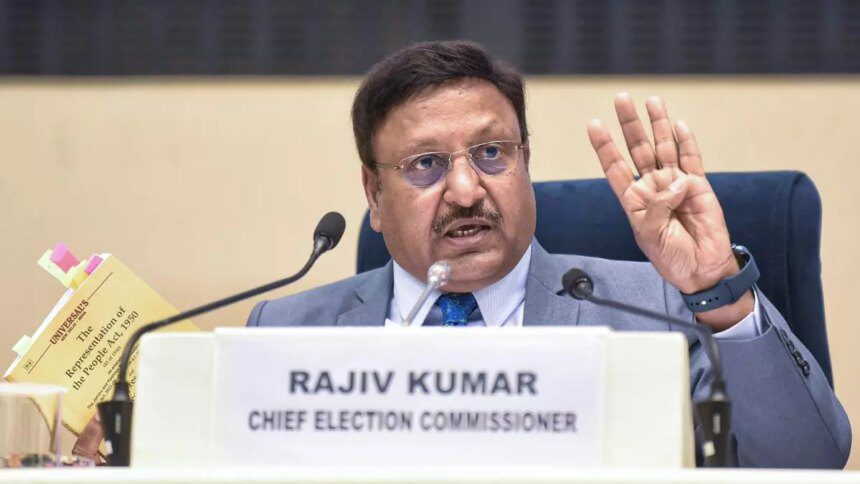Elections for the 70-member assembly in Delhi are scheduled for February 5, with vote counting set for February 8, as announced by Chief Election Commissioner Rajiv Kumar on Tuesday.
“This will be a single-phase election. We’ve intentionally chosen to hold polling on a Wednesday to encourage greater voter turnout, similar to our approach in Maharashtra,” Kumar stated during a press conference.
Additionally, by-elections will take place for two assembly constituencies: Milkipur in Uttar Pradesh and Erode in Tamil Nadu, coinciding with the Delhi elections.
The upcoming polls in Delhi are characterized by a three-way contest, featuring the ruling Aam Aadmi Party (AAP), which is facing challenges due to anti-incumbency sentiments after a decade in power. The Bharatiya Janata Party (BJP) and Congress are the other major contenders.
Candidates for the Delhi assembly must submit their nominations by January 17, followed by scrutiny on January 18. Candidates have until January 20 to withdraw their nominations, as outlined by the Election Commission of India (ECI).
In response to concerns regarding potential manipulation of the electoral roll, Rajiv Kumar emphasized the transparency and accountability inherent in the process. He explained that there are comprehensive measures, including opportunities for individuals to appeal before their names are removed from the voter list.
“Every aspect of managing the electoral roll is conducted transparently. Names cannot be deleted without following strict procedures, and every political party is permitted to raise objections at various stages,” he reassured, addressing controversies surrounding the electoral roll.
Kumar noted that new names may be added after thorough verification conducted by booth-level officers (BLOs).
“Regular meetings with political party representatives are held, allowing them to appoint booth-level agents (BLAs). Weekly updates on claims and objections are provided, and both draft and final electoral rolls are accessible on the Election Commission’s website. We also consult with stakeholders for polling station adjustments,” he insisted.
Regarding deletions from the voter list, Kumar clarified that these occur only through Form 7 or Form B, adhering to strict protocols.
“Mandatory verification is carried out by BLOs, and if deletions surpass 2% of a polling station’s voter list, cross-verification is conducted. Death-related deletions require a certified death certificate, and there’s a seven-day window for objections once notices are published online. Individuals affected by deletions are also given the chance for a personal hearing before their names are removed,” he explained.
Kumar cautioned against questioning the integrity of the electoral process solely during elections.
“In an environment where every vote counts, raising concerns about the deletion of thousands of names without evidence is misleading. The procedures we follow leave no possibility for manipulation,” he concluded.
Among the 70 assembly seats in Delhi, 58 are designated for the general category, while 12 are reserved for Scheduled Castes (SCs).










